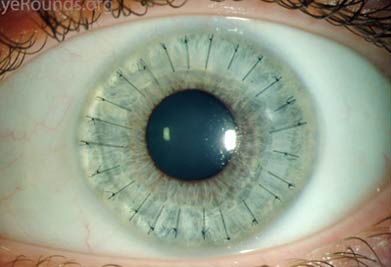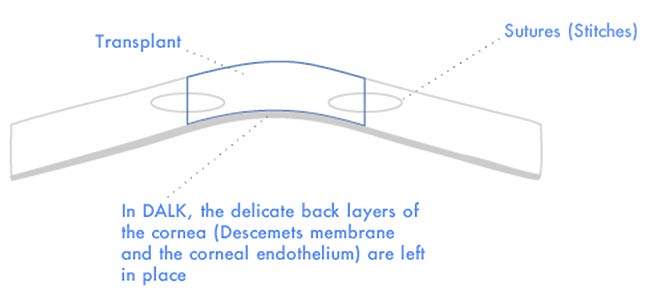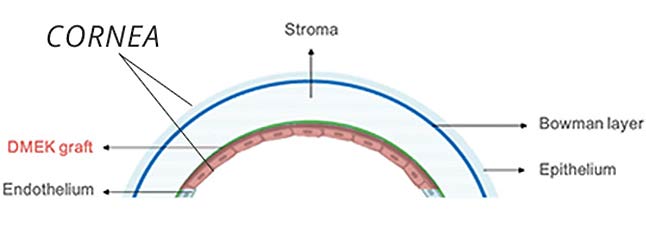Corneal Transplants
The cornea can become cloudy due to infection, scarring, swelling, or from thinning. If the cornea becomes cloudy enough to decrease vision, corneal transplantation is necessary.
Drs. Kennedy and Goff are corneal specialists and have experience performing several different types of corneal transplants, including full thickness and partial thickness procedures.
Full Thickness Corneal Transplant (Penetrating Keratoplasty)
The diseased or cloudy cornea is removed with a circular knife and a healthy, full thickness cornea from a donor is sewn into its place.


Partial Thickness Transplant (DALK)
If only the outer portion of the cornea is diseased, Drs. Kennedy and Goff can replace most of the cornea but leave the innermost layer alone. This results in a much lower rate of rejection and is the procedure of choice for keratoconus.

DMEK and DSEK
If only the innermost layer of the cornea, or the corneal endothelium, has stopped functioning properly, then that layer only can be removed and a new layer transplanted. These partial-thickness transplants result in faster healing and visual recovery compared to full-thickness transplants. DMEK is a new partial thickness corneal transplant that is less than the thickness of a human hair. It results in a faster recovery of vision and less risk of graft rejection compared to other types of partial thickness transplants. Drs. Kennedy and Goff are two of the only surgeons in the New Orleans area able to perform DMEK, which is the procedure of choice for Fuchs’ Dystrophy.

